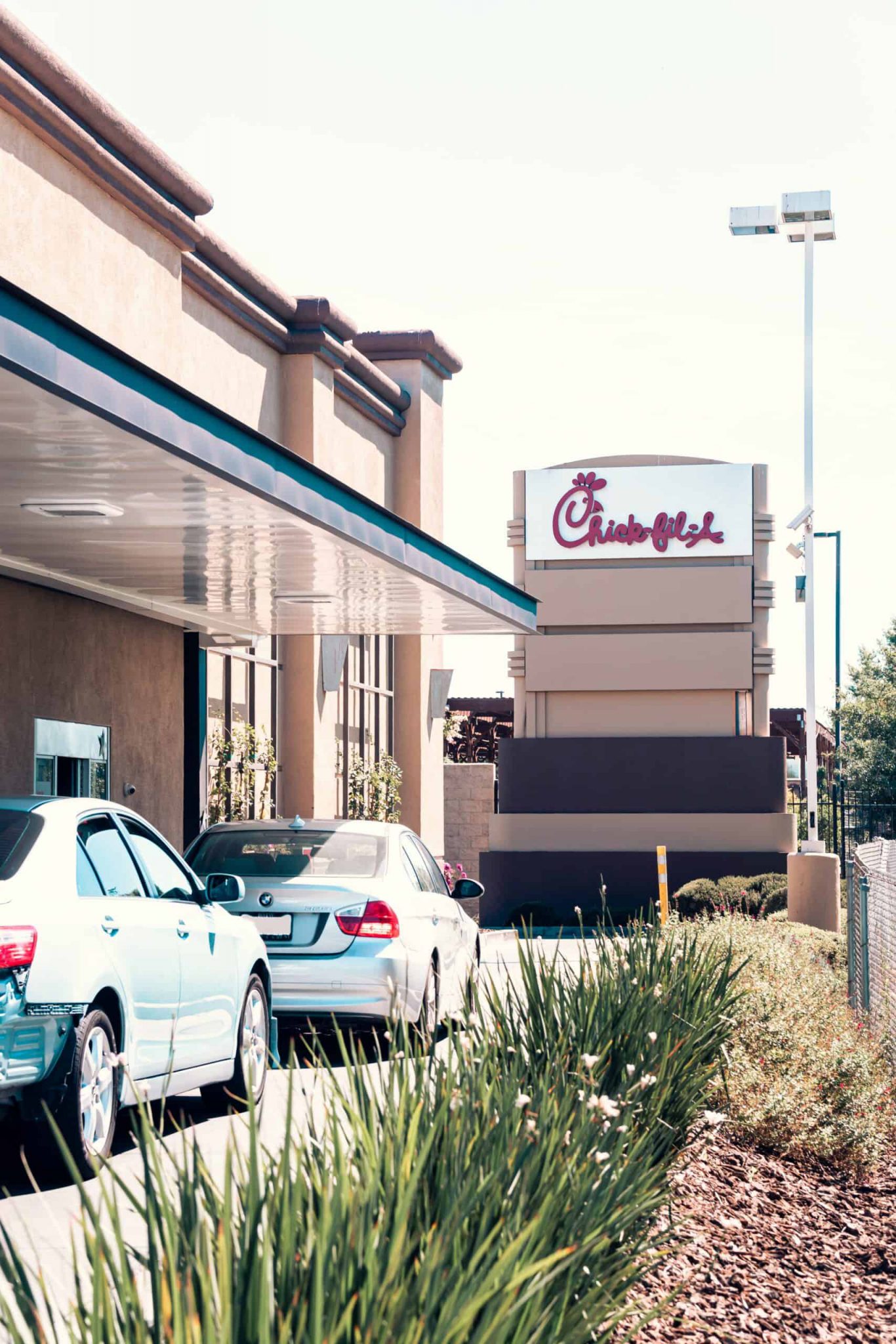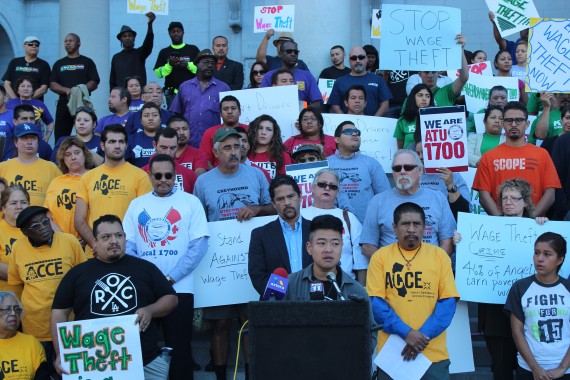
Charlotte Garden is the Julius E. Davis Professor of Law at the University of Minnesota Law School. She is a co-author of casebooks in Labor Law (with Richard Griffin, Joe Slater, and Anne Marie Lofaso), and Employment Law (with Mark Rothstein, Lance Liebman, Kimberly Yuracko and Paul Secunda). Professor Garden’s scholarly articles have appeared in the University of Pennsylvania Law Review, Emory Law Journal, Boston University Law Review, George Washington Law Review, Fordham Law Review, and the William & Mary Law Review. In 2019, Cambridge University Press published Professor Garden’s co-edited volume Cambridge Handbook on American Labor Law: Reviving American Labor for a 21st Century Economy (with Richard Bales).
Last week, a Chick-fil-A franchise in Hendersonville, North Carolina made news by asking for “volunteers” to work at the store’s drive-through window at a rate of five entrees (and zero dollars) per hour worked. A store representative justified the arrangement by claiming “people who sign up for this chose it voluntarily.”
This practice likely violates the Fair Labor Standards Act. The FLSA carves out from its coverage volunteers who offer their services to either public agencies or “private non-profit food banks”; the negative implication is that for-profit businesses cannot run on volunteers. In any event, someone who is paid in chicken sandwiches is not a volunteer. In the 1985 Supreme Court case Alamo Foundation v. Secretary of Labor, the Court wrote that benefits including “food, shelter, clothing, transportation, and medical benefits” were “wages in another form.” And a worker who labors in expectation of compensation is entitled to be paid at least the minimum wage.
But under a new bill that goes by the name “Worker Flexibility and Choice Act,” agreements to waive the minimum wage and overtime — even by paying workers in chicken sandwiches — could become legal. The bill would create a new carve-out from the FLSA’s wage-and-hour floors for employees who sign “worker flexibility agreements.” In return, the bill requires very little of employers. A valid “flexibility agreement” must do two things: first, it must allow workers to reject offers of work without losing eligibility to be offered work in the future; and second, workers must be free to work for competing businesses — unless they agree to waive this provision in a “non-solicitation sales agreement.” (In addition, the employer cannot have treated the worker signatory as an employee during the same calendar year.)
The good news is that the WFCA currently has only three co-sponsors, and it is unlikely to become law, at least while Democrats control Congress. (One of those sponsors, Henry Cuellar, is a conservative Democrat; the other two co-sponsors are Republicans.) But it is still important to push back against the narrative that trading often-illusory flexibility against minimum employment standards is good for workers.
The bottom line is that the flexibility the WFCA would offer is mainly for employers, not workers. To begin, it would give companies like Uber and Lyft even more freedom to pay substandard wages than they have under California’s Proposition 22, simply by having drivers sign flexibility agreements. (The WFCA requires that flexibility agreements be knowing and voluntary, but that requirement probably would not stop employers from offering them on a take-it-or-leave-it basis.)
But the WFCA isn’t limited to platforms — any employer could use them to exempt themselves from wage-and-hour law. To be sure, this might present practical challenges for some. For example, it might prove difficult for an employer to run an assembly line involving many specialized positions while also allowing employees to reject offers of work without penalty. But difficult doesn’t mean impossible; employers might try, for example, offering workers the “opportunity” to work from 8 AM to 8 PM every day for a month, for less than the minimum wage. Of course, a worker who rejects the offer can’t be barred from future offers of work, and so the employer couldn’t use the threat of termination as a cudgel — but the employer might bet that workers will be unable to say no to a full month’s work, especially during high unemployment.
It might be more likely that employers would not completely transition to “flexibility agreements,” but would instead rely on them for workplace tasks they deemed peripheral. The Hendersonville Chick-fil-A is again illustrative: In addition to arguing that workers agreed to the chicken-sandwich arrangement, a store representative apparently also wrote on Facebook that it was a “win-win,” because the “volunteers” were responsible for “traffic direct[ing]” other guests, allowing employees to “focus on serving the guests in what we do best.” The same justification is often offered when companies “fissure,” using other techniques to avoid responsibility for complying with work law with respect to a group of employees. “Fissured” employees are already often among the most vulnerable workers; the WFCA would almost certainly exacerbate that dynamic, worsening both overall income inequality and racial income disparities.
There is nothing innovative about the idea that employers should not be bound by minimum labor standards if they can convince employees to work for less. Companies making this argument today often aim to convey that their workers do not really need their pay for necessities — consider ride-hail company ads that suggest drivers can earn extra money for vacations or restaurant meals. The intended meaning seems to be that workers’ decisions to accept the offered terms must have been relatively unconstrained, and by extension unproblematic.
But this narrative is false in at least two important ways. First, it is false in the sense that workers who accept substandard conditions are often trying to make ends meet, not pay for “extras.” For example, this recent MIT study focused on people who turned to platform work after losing their jobs, suggesting that driving for Uber was an alternative to (often inadequate) unemployment insurance. And Professor Veena Dubal’s enthnographic research paints a stark picture of conditions for drivers — often immigrants and/or members of racial minority groups — trying to make a living through ride-hail platforms.
Second, the worker-choice narrative misses the bigger picture. Substandard wages subvert the moral idea of “a fair day’s pay for a fair day’s work” that animated the FLSA, and they also undermine other workers’ bargaining power. The latter was obvious to the Alamo Foundation Court: “If an exception to the Act were carved out for employees willing to testify that they performed work ‘voluntarily,’ employers might be able to use superior bargaining power to coerce employees to make such assertions, or to waive their protections under the Act.” “Such exceptions to coverage would affect many more people than those workers directly at issue in this case and would be likely to exert a general downward pressure on wages in competing businesses.”
Perhaps not coincidentally, another story from last summer reported that competition for workers had led the Hendersonville Chick-fil-A franchisee to raise its starting wage for new full-time workers to $19/hour. That is nearly a living wage for a single adult with no children in Henderson County. Of course, many employers would prefer to pay their employees less, whether during tight labor markets, or times of high unemployment. They may be able to find workers who will accept these terms, sometimes because of desperation, and maybe sometimes for other reasons — but work law shouldn’t mistake acceptance for acceptability.










Daily News & Commentary
Start your day with our roundup of the latest labor developments. See all
July 2
Block, Nanda, and Nayak argue that the NLRA is under attack, harming democracy; the EEOC files a motion to dismiss a lawsuit brought by former EEOC Commissioner Jocelyn Samuels; and SEIU Local 1000 strikes an agreement with the State of California to delay the state's return-to-office executive order for state workers.
July 1
In today’s news and commentary, the Department of Labor proposes to roll back minimum wage and overtime protections for home care workers, a federal judge dismissed a lawsuit by public defenders over a union’s Gaza statements, and Philadelphia’s largest municipal union is on strike for first time in nearly 40 years. On Monday, the U.S. […]
June 30
Antidiscrimination scholars question McDonnell Douglas, George Washington University Hospital bargained in bad faith, and NY regulators defend LPA dispensary law.
June 29
In today’s news and commentary, Trump v. CASA restricts nationwide injunctions, a preliminary injunction continues to stop DOL from shutting down Job Corps, and the minimum wage is set to rise in multiple cities and states. On Friday, the Supreme Court held in Trump v. CASA that universal injunctions “likely exceed the equitable authority that […]
June 27
Labor's role in Zohran Mamdani's victory; DHS funding amendment aims to expand guest worker programs; COSELL submission deadline rapidly approaching
June 26
A district judge issues a preliminary injunction blocking agencies from implementing Trump’s executive order eliminating collective bargaining for federal workers; workers organize for the reinstatement of two doctors who were put on administrative leave after union activity; and Lamont vetoes unemployment benefits for striking workers.